
Tell me if any of this resonates with you...
QuickBooks and spreadsheet tools like Excel are often suitable for managing financial tasks when your business is in its early stages. However, as your business expands, the limitations of these tools can become more apparent, leading to increased operational challenges and inefficiencies.
As your business scales up, it's important to recognize the signs that you might be outgrowing these initial solutions.
Here are some key indicators that it might be time to consider more advanced
financial management systems:

Overreliance on
Spreadsheets

Relying heavily on spreadsheets can lead to a deep sense of frustration and vulnerability as your business grows.
Initially simple and convenient, these tools quickly become overwhelming and error-prone, trapping you in a chaotic tangle of data that stifles your company's potential.
This overdependence not only creates a stressful environment but also exposes your business to significant risks, blocking the path to innovation and growth

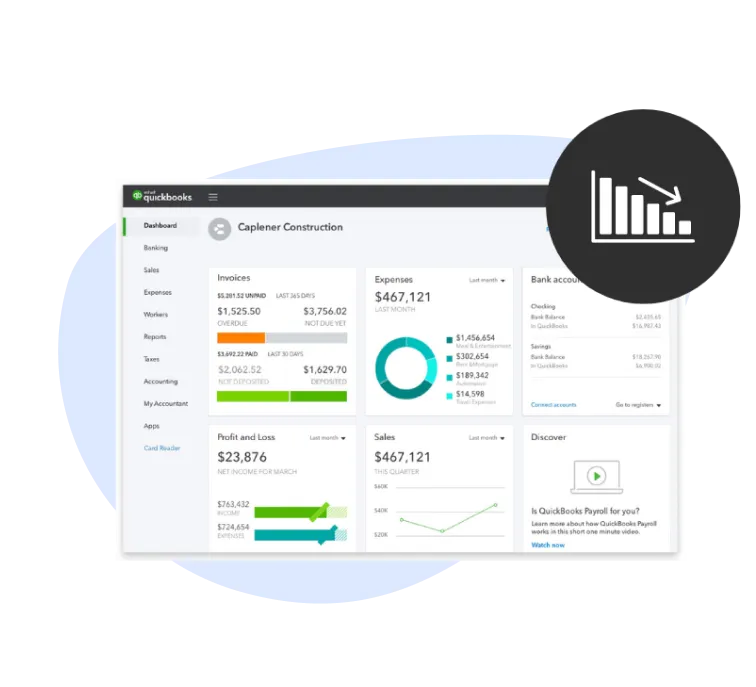

Scalability
Limitations

Growth often brings complexity in business operations, requiring more sophisticated accounting features. For example, larger businesses might need better tools for multi-currency transactions, advanced inventory management features, or detailed financial forecasting that QuickBooks doesn't offer natively or might offer only in more expensive editions.
As businesses grow, the number of transactions typically increases. This can include everything from sales, purchases, inventory adjustments, to payroll entries. QuickBooks might experience performance slowdowns or become less efficient with handling larger datasets, which can affect daily operations and reporting accuracy.

Reporting
Limitations

QuickBooks comes equipped with a suite of built-in reporting and dashboard features designed to help businesses manage their financial data effectively.
However the scrap industry has some unique reporting requirements and many business owners find themselves relying on external spreadsheet software like Microsoft Excel or Google Sheets.
This reliance involves exporting data from QuickBooks and then manipulating it in spreadsheets to create custom reports. This process not only increases the workload but also introduces a greater risk of errors due to manual data entry and manipulation.

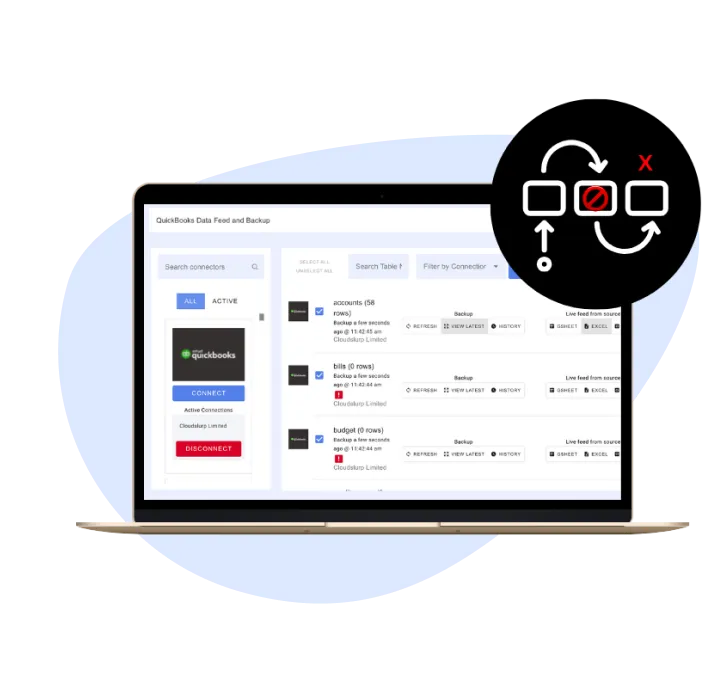

Inventory and Waste Tracking Challenges in QuickBooks for Scrap Companies

Complex Material Tracking: QuickBooks lacks the capability to effectively track various types of recyclable materials, such as plastics, metals, paper, and electronic waste. This complexity often leads to inaccurate inventory records and difficulties in managing the flow of materials through the Scrap process.
Inadequate Process Monitoring: The software does not provide tools to monitor the different stages of the Scrap process, from collection and sorting to processing and final sale. This makes it challenging to track material volumes, contamination levels, and processing efficiency, which are crucial for operational effectiveness.
Difficulty in Real-Time Updates: QuickBooks struggles with providing real-time updates on inventory levels and waste movements. This lack of real-time visibility can lead to overstocking or understocking issues, inefficiencies in material handling, and delayed response times to market demands or regulatory requirements.

Cost Management and Profitability Analysis Challenges in QuickBooks for Scrap Companies
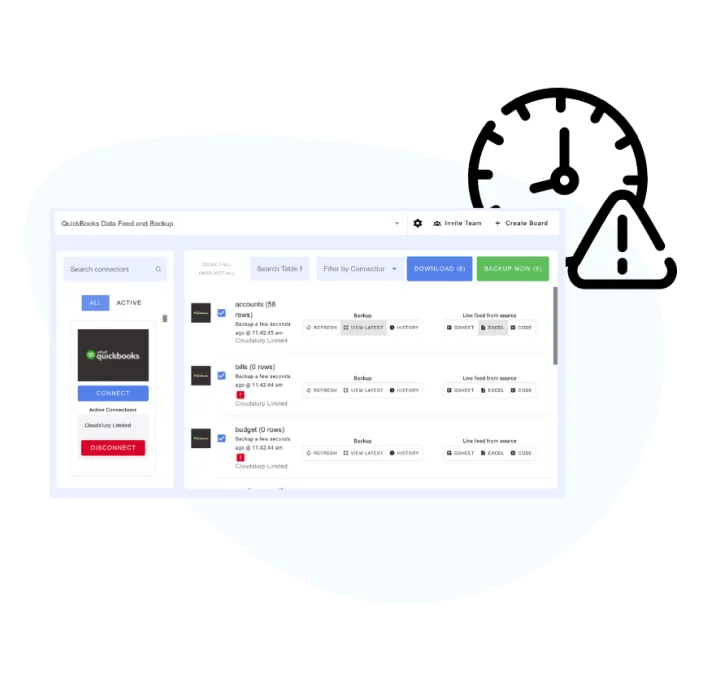
Tracking Collection and Processing Costs: QuickBooks does not offer detailed tools to track the specific costs associated with collecting and processing different types of recyclable materials. This lack of granularity makes it difficult to understand the true cost of operations and identify areas for cost savings.
Analyzing Profitability by Material Type: The software's limited reporting capabilities hinder the ability to analyze profitability by material type. Without detailed financial insights, Scrap companies struggle to determine which materials are most profitable and where to focus their efforts for maximum financial return.
Inaccurate Cost Allocation: QuickBooks often falls short in accurately allocating costs to different stages of the Scrap process, such as transportation, sorting, and processing. This can lead to skewed financial reports, making it challenging to assess the financial performance of each process and make informed business decisions.

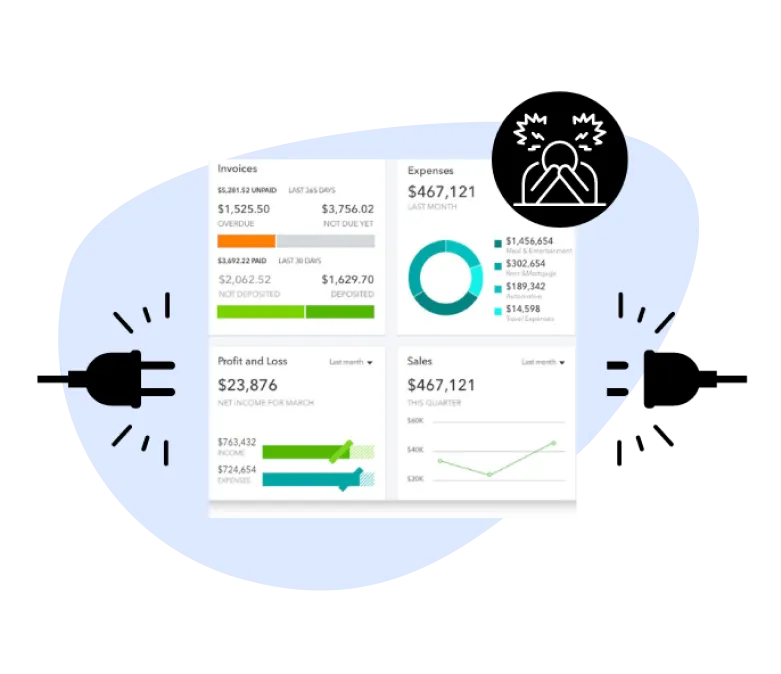

Disconnected Operations and Financials

Disconnected systems lead to inconsistencies in data across different departments and operations. This makes it difficult to generate accurate and consolidated financial reports, hindering the ability to get a clear picture of the company's overall financial health and performance.
When systems are not seamlessly connected, it can lead to a disjointed workflow, causing delays, errors in order processing, and a frustrating customer experience.
This disconnection can hinder a company’s ability to scale efficiently and respond quickly to market demands, ultimately impacting revenue and growth opportunities.

Lack of Realtime
Financials
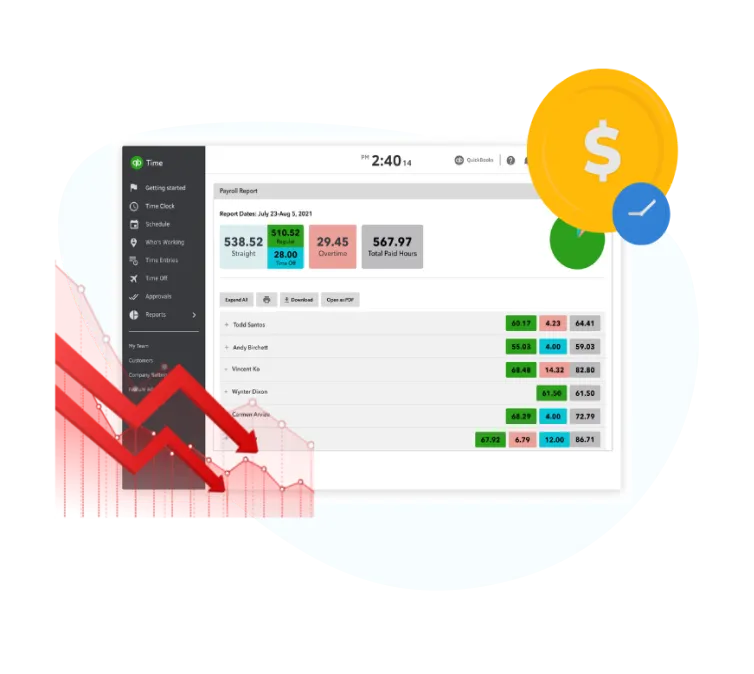
Operating without real-time financials can leave businesses navigating in the dark, struggling to make informed decisions swiftly.
This delay in financial reporting can lead to missed opportunities and reactive instead of proactive management, stalling growth and innovation.
The inability to access up-to-date financial data creates a stressful environment of uncertainty, making it challenging to respond to market changes effectively.

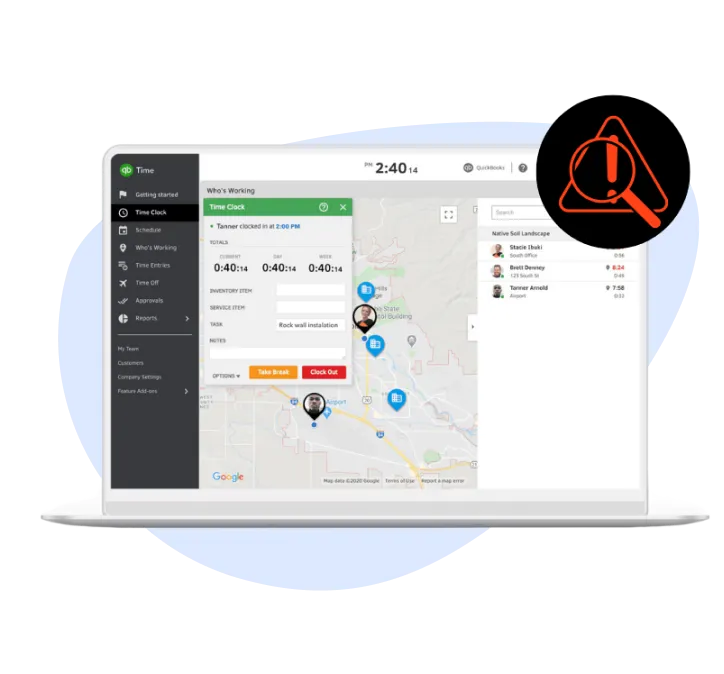

Real-Time Data Access Challenges in QuickBooks for Scrap Companies

Delayed Data Updates: QuickBooks lacks robust real-time data capabilities, meaning that inventory levels, sales figures, and operational metrics are not updated instantly. This delay can hinder decision-making and responsiveness, leading to inefficiencies in managing day-to-day operations.
Limited Mobile Accessibility: The software's limited mobile functionality restricts field workers and managers from accessing critical data on-the-go. This can cause delays in data entry and updates, affecting the accuracy and timeliness of information available for managing Scrap operations.
Operational Inefficiencies: Without real-time data access, Scrap companies struggle to optimize their logistics, inventory management, and sales processes. This lack of immediate visibility into operational metrics can lead to overstocking, understocking, and missed opportunities in responding to market demands and regulatory changes.

Workflow Integration Challenges in QuickBooks for Scrap Companies
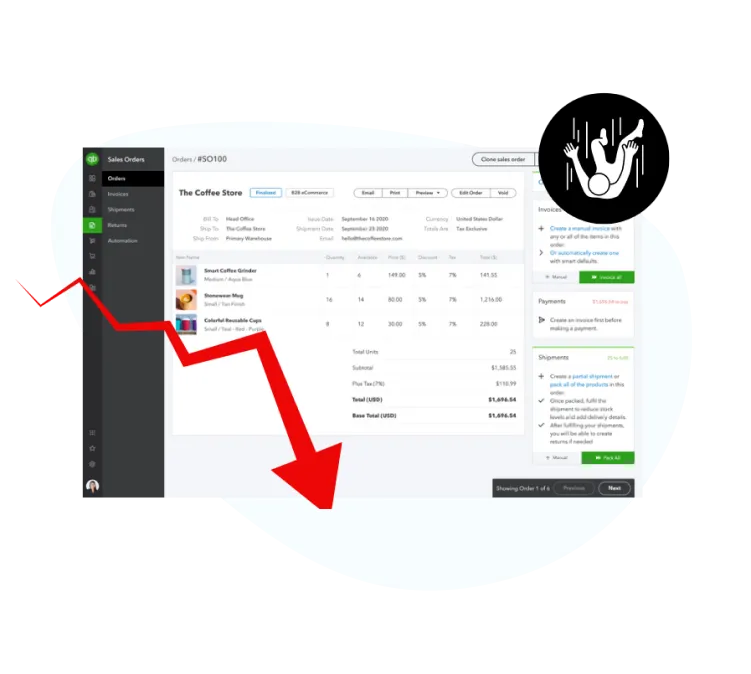
Fragmented Systems: Scrap companies often use specialized software for different aspects of their operations, such as collection route management, processing facility oversight, and sales of recycled materials. QuickBooks' limited integration capabilities result in fragmented systems, causing data silos and inefficiencies as information has to be manually transferred between platforms.
Manual Data Entry: Due to QuickBooks' poor integration with industry-specific tools, employees are often required to manually enter data from one system into another. This not only increases the workload but also raises the risk of data entry errors, leading to inaccuracies in financial and operational reports.
Inconsistent Workflow Processes: The lack of seamless integration means that workflows are often inconsistent and disconnected. For example, updates in inventory levels or sales might not be reflected in real-time across all systems, leading to delays in processing, billing, and reporting, which can negatively impact the overall efficiency and responsiveness of the business.

If you said “YES” to any of the above, then you’re in the right place!
Replace QuickBooks and Spreadsheets with NetSuite
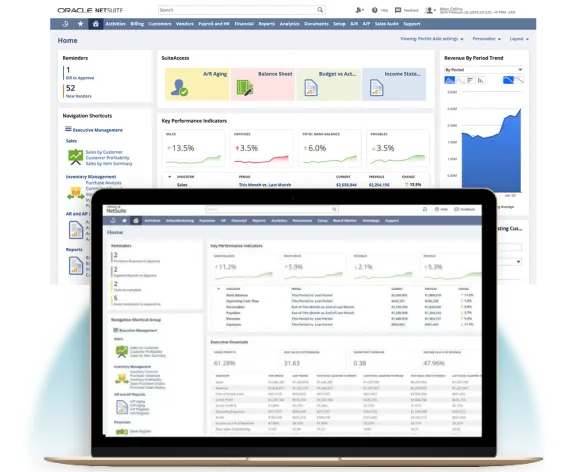
Elevate your scrap business with NetSuite, the all-in-one cloud ERP solution tailored for your industry's unique needs. Our platform brings together every aspect of your business—from supply chain logistics to customer engagement—into one seamless system.
Gain real-time visibility and unparalleled control, enabling more efficient operations, reduced costs, and better decision-making. With advanced analytics at your fingertips, stay on top of market trends and consumer behaviors to outpace the competition. Whether you're scaling up or optimizing existing processes, NetSuite grows with you. Revolutionize your business with NetSuite and lead the way in innovation.


Single System
of Truth
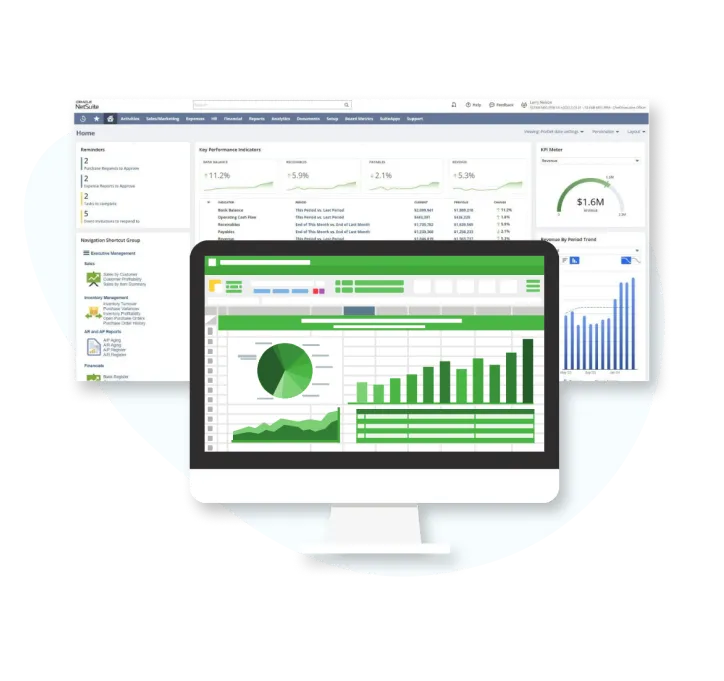
NetSuite provides a single system of truth, centralizing data across all departments to enhance transparency, streamline operations, and support informed decision-making.

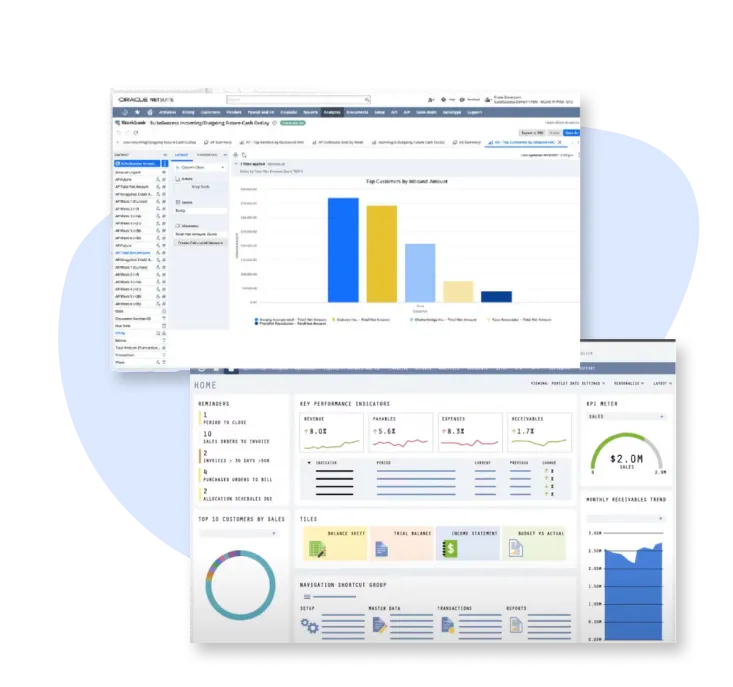

Integrated Workflow Management

NetSuite provides a unified platform that seamlessly integrates all aspects of Scrap operations, from collection route management and processing facility oversight to sales and inventory tracking. This integration eliminates data silos, reduces manual data entry, and ensures that all systems communicate effectively, leading to more efficient and accurate workflows.

Advanced Ticket Management
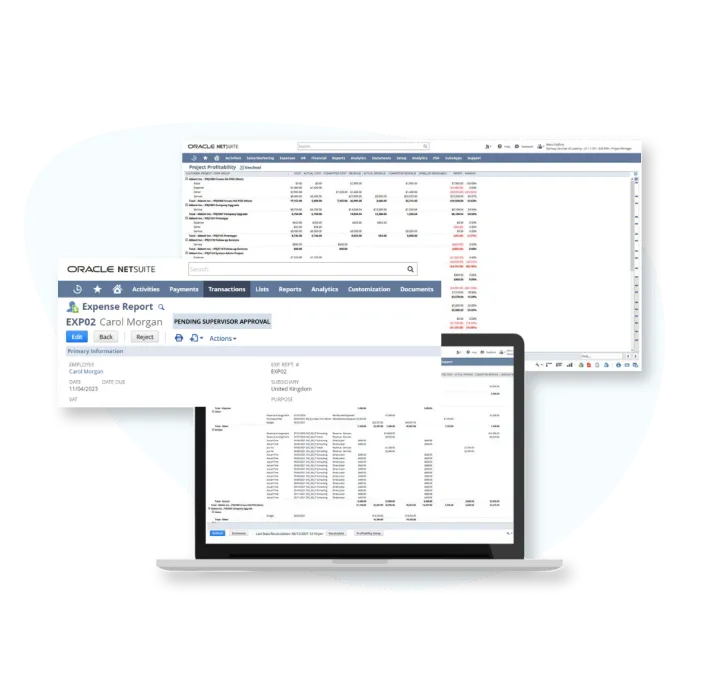
NetSuite's advanced ticket management system allows Scrap companies to efficiently track and manage service requests, maintenance issues, and customer inquiries. This ensures that all tasks are handled promptly and effectively, improving customer satisfaction and operational efficiency.

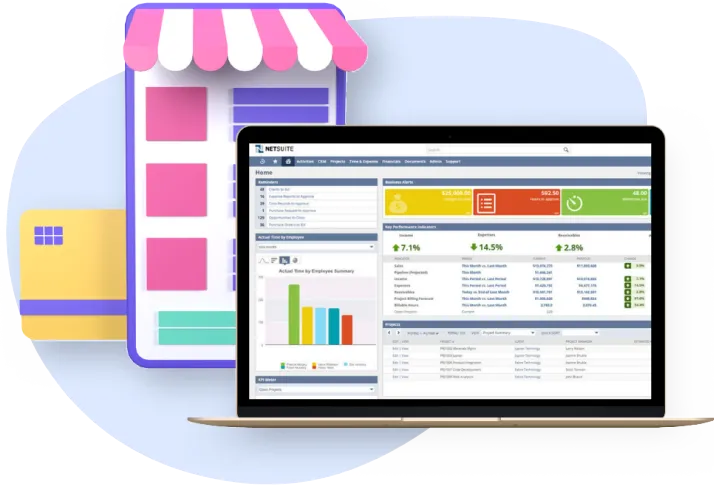

Enhanced Mobility

With robust mobile capabilities, NetSuite enables field workers and managers to access real-time data and update information on-the-go. This mobility ensures that inventory levels, sales figures, and operational metrics are always up-to-date, enhancing decision-making and responsiveness in managing Scrap operations.

Realtime
Financials
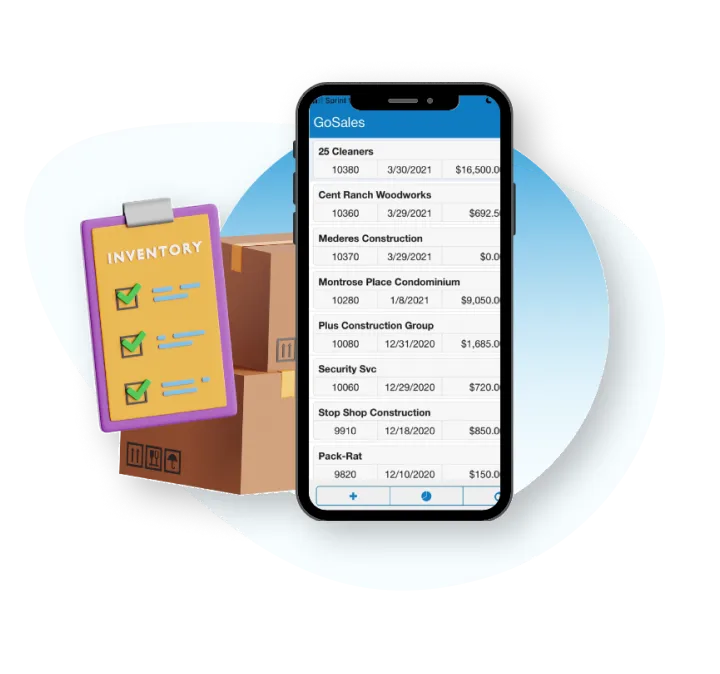
NetSuite provides real-time financials, enabling immediate insight into your business's financial health and facilitating swift, data-driven decision-making.

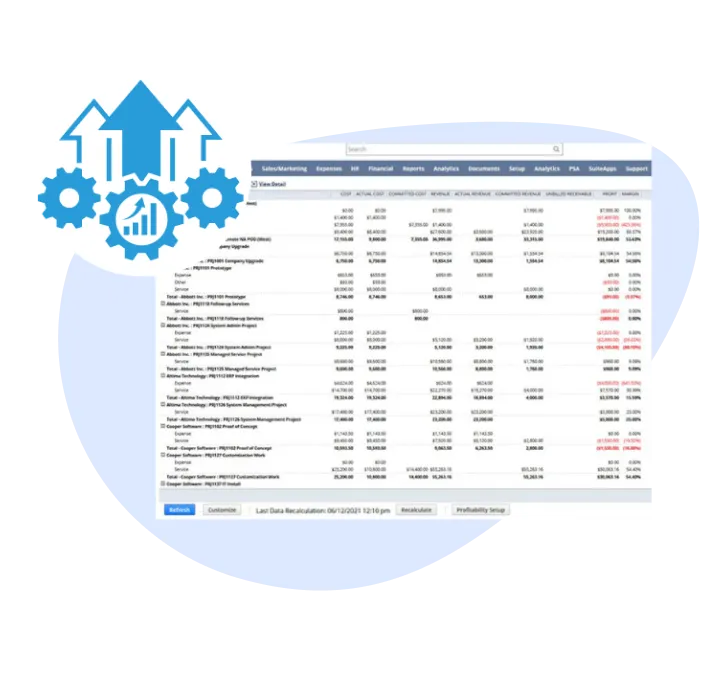

Comprehensive Cost and Profitability Analysis

NetSuite offers detailed financial management tools that allow Scrap companies to accurately track costs associated with collection, processing, and sales of recyclable materials. Advanced reporting and analytics features enable companies to analyze profitability by material type, process stage, and other critical factors, leading to better financial decision-making and improved profitability.
I Help Circular Economy Scale

Zabe Siddique is widely acknowledged for his expertise in Enterprise Resource Planning (ERP) systems with a career that spans over 25 years. Zabe's journey through the world of ERP is not just about his career milestones; it's a story of his genuine passion and consistent dedication to helping organizations transform their business with ERP.
“My expertise lies in partnering with companies to navigate the complex journey of business transformation through the strategic implementation of ERP solutions. I assist organizations in streamlining their processes, enhancing operational efficiency, and achieving a competitive edge in their respective industries.”
Zabe Siddique
CEBA Solutions CEO and Founder

Why CEBA Solutions

CEBA Solutions is a prominent NetSuite Solution Provider known for its expertise in delivering advanced NetSuite implementations for a diverse range of industries including scrap.
At CEBA Solutions, we excel in customizing NetSuite implementations specifically for the scrap industry. Our team understands the distinct challenges and needs of this sector, from complex supply chain management to stringent regulatory compliance. We delve deep into each client's specific requirements, leveraging NetSuite to craft a system as distinctive as their business.
Our commitment goes beyond system implementation; we aim to build lasting partnerships with our clients. We provide continuous support and enhancements well after the initial setup, ensuring that our clients' investments in NetSuite deliver ongoing value. What truly distinguishes us at CEBA Solutions is our dedication to adapting our solutions to the evolving needs of the scrap industry, helping our clients thrive in a competitive landscape.


Our Client Review

"CEBA was the partner that we needed to implement NetSuite in a thoughtful and pragmatic way. We lost three months by not having a conversation with CEBA first"
Pat Piette - CFO, Sabbel Concepts

"I can explain a situation to Zabe and he knows exactly where we need to tackle that challenge and how to direct his team to ensure that we get there, and to make sure that the ultimate outcome is exactly what I'm looking for as a client. He does a really good job of that."
Steve Robertson - CFO, HDMI











